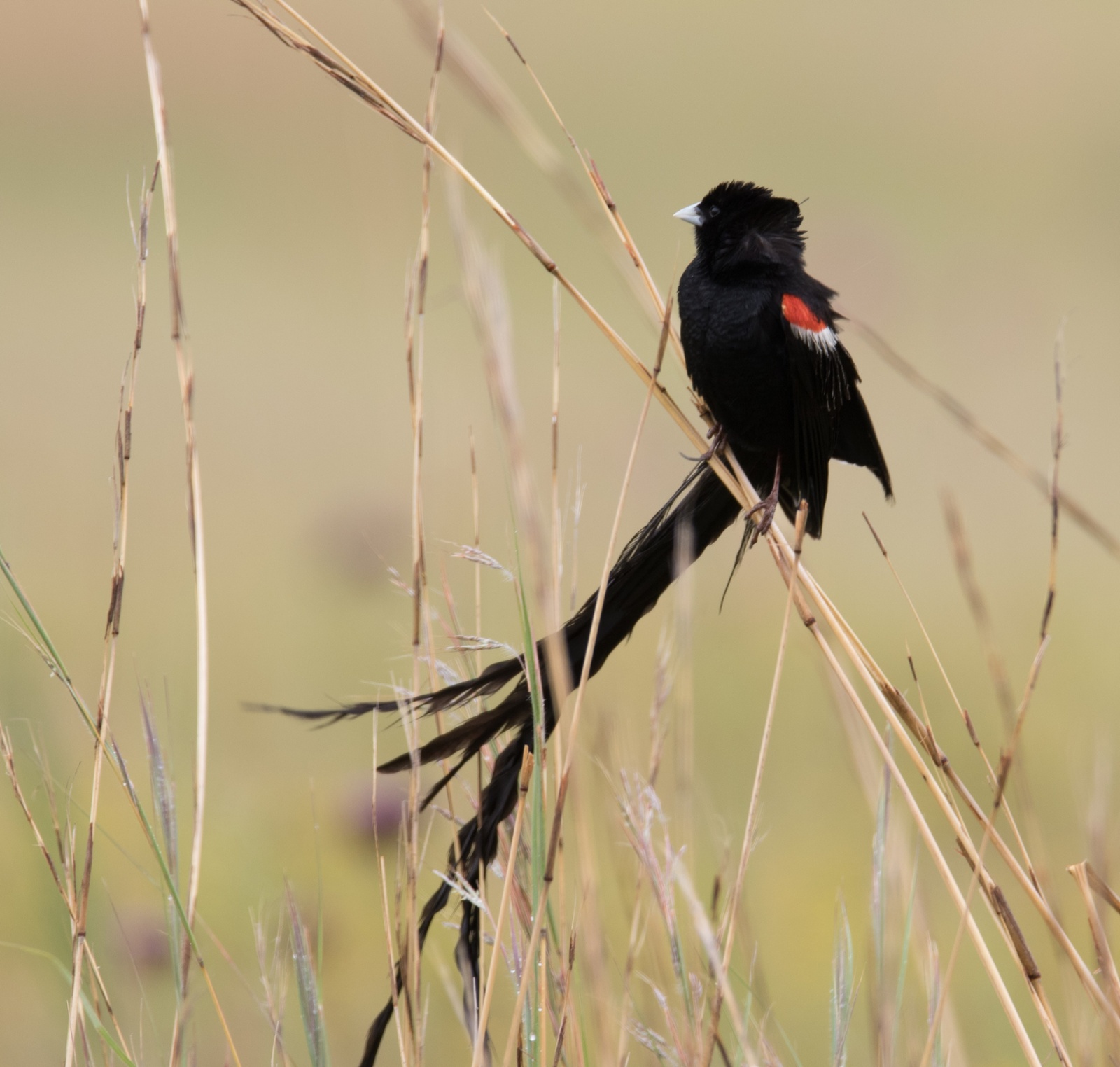Tricolored Blackbirds

Tricolored Blackbirds are a species whose main range is within California. Historically they have nested in Central Valley wetlands, but have adapted to nest in winter silage fields grown on or near dairies. They typically nest in the Southern San Joaquin Valley between March and May and move northwards to nest again in the Sacramento Valley between May and June. For the remainder of the year Tricolored Blackbirds can be found in many areas of California in mixed flocks of different blackbird species. A video about Tricolored Blackbirds and their nesting behavior on dairies can be found here.
In 2015 Farm Bureau partnered with Audubon California, Dairy Cares, Sustainable Conservation, Western United Dairymen, and US Fish and Wildlife Service to obtain a grant from USDA’s Natural Resources Conservation Service (NRCS) under the Regional Conservation Partnership Program. The grant dedicates funds through 2019 to pay farmers with Tricolored Blackbirds nesting in their grain fields a significant portion of the lost value of the crop. Funds are also available to pay for natural habitat development to create more native habitat for Tricolored Blackbirds.
In April 2018 the Fish and Game Commission (Commission) voted to list the Tricolored Blackbird as threatened under the California Endangered Species Act (CESA). Farm Bureau testified before the Commission against the listing.
During the Tricolored Blackbird’s candidacy period Farm Bureau recognized the impact the listing has on dairies that provide habitat in their silage fields for the birds and worked with dairy organizations to get a regulation adopted that allows incidental take of the species in limited circumstances. The regulation authorizes take of Tricolored Blackbirds incidental to the harvest of grain fields and related agricultural activities on farms that agree to participate in the harvest management program to protect the nesting colony. Now that they are listed as threatened, Farm Bureau will work to create a Safe Harbor Agreement to provide similar protections for farmers who agree to delay harvest and protect nesting colonies.
The harvest management program is administered by NRCS and provides funds to cover the lost value in the silage crop due to the harvest delay. To participate, farmers agree to have a biologist inspect the colony and identify both the area utilized for nesting by the colony as well as the estimated date that the young will leave the nests. They must agree to establish a buffer zone around the colony if they choose to harvest areas of the field containing nesting Tricolored Blackbirds not inhabited by the colony and agree to delay harvesting the area colonized until after the young have left the nests.
Anyone who suspects they have Tricolored Blackbirds nesting on their farm should contact their local NRCS office for more information about the harvest management program.




.svg.png?cacheid=0.9616018850896426)